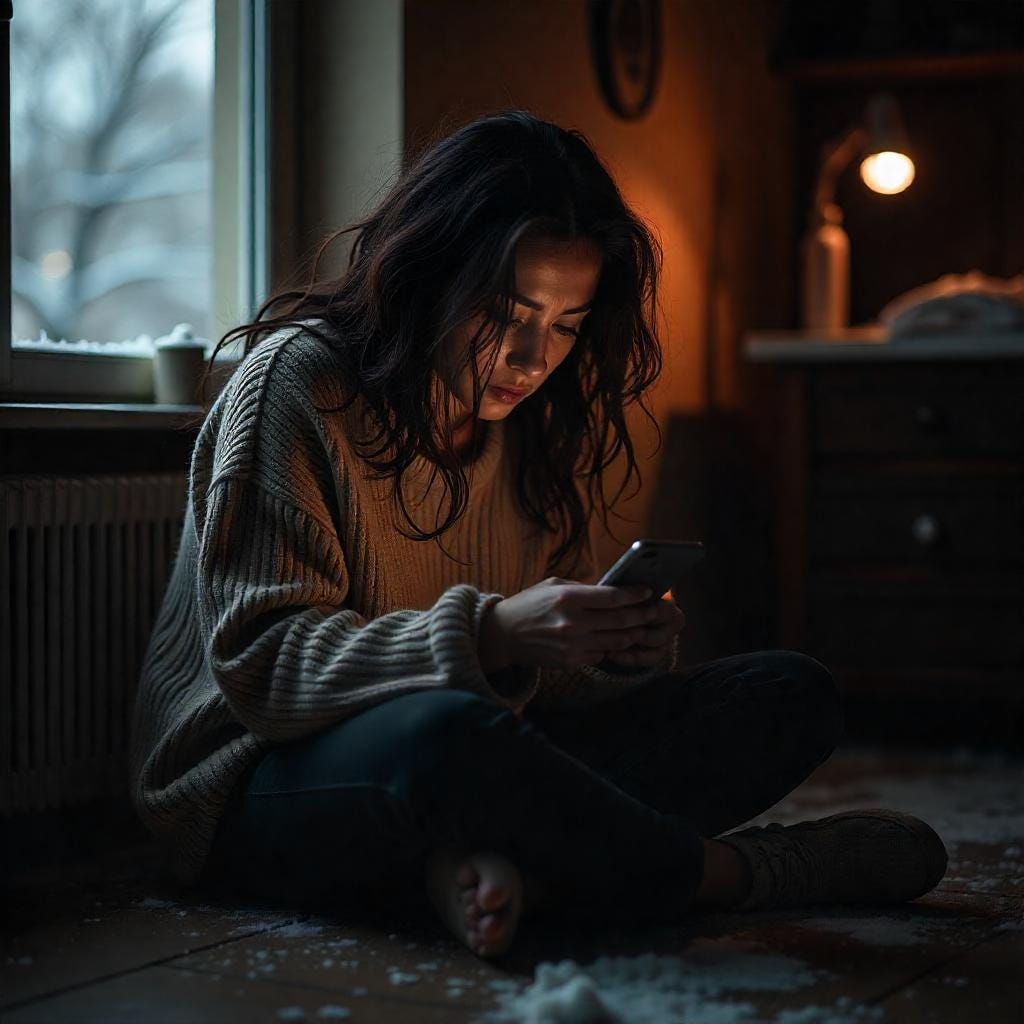Observations from first months of Screen Time Coaching
On the Personal-Emotional Landscape of Screen Use
Over the last few months, I’ve been taking people on coaching journey, helping them reduce their screen time. I’m still learning what works and what doesn’t.
I’m constantly updating my understanding of the problem, and it’s fascinating
the different variations on the theme of chalenging screen use that emerge.
There are many different manifestations of the problem, here are a few of the commonalities that I’ve noticed emerging in many cases.
A lot of frustration at their current situation.
A sadness lying underneath at the impact it had had on their life.
A long and winding journey pockmarked by a series of events that brought them into a deeper interwoven relationship with their screens; events that in some way ‘reduced’ them and the devices filled the gap.
A confusing dynamic whereby the screen behaviour historically served an important function in their life, and to an extent still has the same functionality, however the behaviour has stopped fulfilling it’s original protective purpose, and is now an automated, compulsive reflex reaction when issues arise. These issues could be moved through more easily if processed through non-screen time activities.
The very thing that people are seeking from their screens (whether it be validation, chilling, numbing, gratification, relationships, work etc) become in itself the thing that can trigger them, setting off a cascading series of negative thoughts/emotions which leads them further into screen binges and compulsive use. Thus this terrible dynamic emerges where engaging with screens is in itself the trigger which causes further scrolling behaviour and so the issue compounds.
A lack of awareness about the detrimental impact on cognition that excessive screen time is having on their capacity to change their behaviour.
Struggle with knowing how to rest without using their devices. Often the devices were used as the tools of rest.
Pressure around always being on, whether that be professionally or socially. The sheer exhaustion of notifications. This seems to be love/hate. People often derive meaning, pleasure and satisfaction from this, but then, in other moments feel trapped by it.
Energy management, many noted that when they are tired or ill their usage seems to slip even further. That the hardest times were at the end of things, when they needed ‘downtime.’
An awareness that often without realising they would fall into comparison with others on social media, and this has unpredictable results on their self esteem.
Nobody got there simply by scrolling.
As a coach my role has been to listen as intently as I possibly can, giving them every ounce of my presence and compassion. I’m following a client-led methodology and philosophy. Whereby I work with the inner wisdom of the client. They will know themselves better than I can ever possible hope to do so.
My role is to support them to convey that higher self to themselves, instantiate into identity into reality, see themselves reflected in the words and aspirations and actions they take.
I’ve been helping them investigate their own issue, being the witness to the pain and the desire for change, asking powerful questions which get to the root of the issue and then from there help the clients build realistic experiments and goals to work on week to week.
I layer in different foundational ideas about neuroscience, habit formation, attentional rhythms, conscious digital practises, lifestyle design and device engagement protocols when appropriate but I’m led by the clients. There is no one-size fits all answer to this screen game we are all playing. We each have to navigate our own way towards screen liberation.
What has been incredibly validating and beautiful to watch is the changes that have been occurring in clients. For many, just the space to be totally open about the situation they are in, seems to be an incredible cathartic and opening experience. I see a relief and a change over come them, as words that might have never left their mouth are spoken, sometimes for the first time, even to themselves. Just this for many people may be a large part of the work, recognising something within themselves and naming it to another human.
Then as we start to create space, start to generate more and more distance from the undesired screen behaviours there seems to emerge a further clarity, like a lifting of the fog, a slow becoming as new wrinkles and facets emerge.
It’s slow work, we are undoing (for some, soon most) a lifetime of habituation, a lifetime of reliance, a story that runs very deep about the utility and necessity of these devices.
If this article speaks to you and you would be curious to have an an initial conversation about working together feel free to book a call with me
I’m currently taking on clients at a reduced rate as I hone my craft and learn the art of supporting people towards screen liberation.
Thanks for reading!


